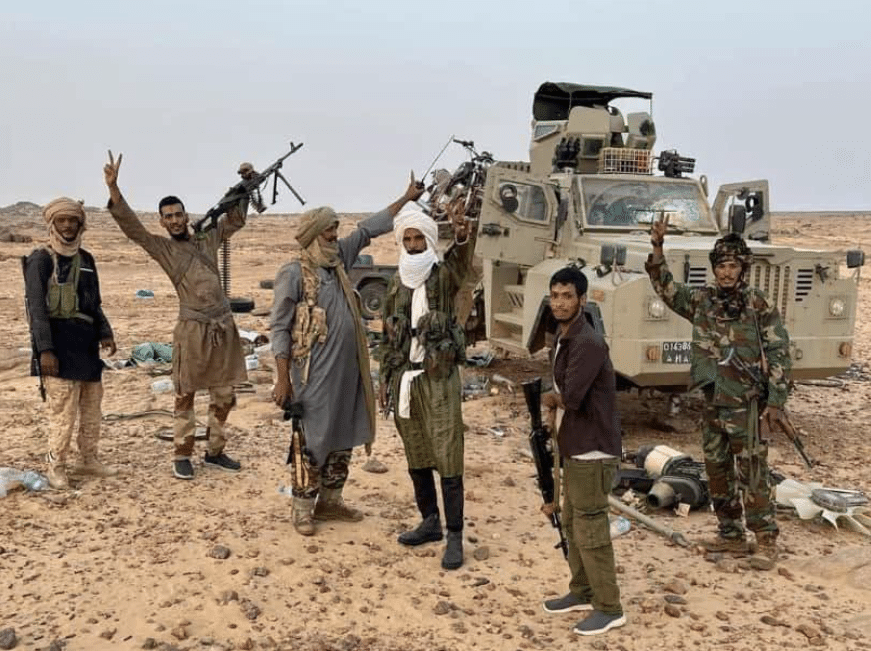The Algerian regime relationship with terrorist groups operating in the Sahel is raising concern of the international community over peace and stability in the region.
According to intelligence reports, Algerian security services facilitate and turn a blind eye on the smuggling of weapons used by jihadist groups operating in Mali, Burkina Faso, Libya, and Niger.
Militants of Al-Qaeda in the Islamic Maghreb (AQIM) and the Group for the Support of Islam & Muslims (Jama’at Nusrat al-Islam wal-Muslimin) benefit from local complicity in border regions, facilitating their access to arms caches and their movements across the borders of Sahel countries and Algeria.
AQIM was formed in 1998 as the Salafist Group for Preaching and Combat (GSPC), a faction of the Armed Islamic Group, which was the largest and most active terrorist group in Algeria. The GSPC was renamed in January 2007 after the group officially joined al-Qaeda in September 2006.
AQIM is U.S.-designated foreign terrorist organization (FTO) operating in the Sahara and Sahel. The group flourished during Algeria’s civil war in the 1990s before becoming an al-Qaeda affiliate with regional ambitions. AQIM and its offshoots pose major terror threat in North and West Africa.
Jama’at Nasr al-Islam wal Muslimin is a coalition of Salafi-jihadist insurgent groups operating in the Sahel region of sub-Saharan Africa. Formed in 2017, JNIM has expanded its operating territory across West Africa while waging a sustained campaign of violence against civilians, local security forces, international militaries, and UN peacekeepers.
The fall of Gaddafi in 2011 exacerbated insecurity in the region. Due to its geographical proximity and strategic interests, Algiers played an ambiguous role in the Libyan crisis.
Although it officially supported the Libyan peace process and affirmed its opposition to foreign interference, some experts believe that the Algerian authorities failed to prevent the export of arms and jihadist fighters from Libya, who crossed the borders to join terrorist groups operating in the Sahel.
To counter this regional threat, the Alliance of Sahel States (Mali, Niger & Burkina-Faso) has decided to deploy a joint force of 5,000 soldiers to fight jihadists threatening the stability of Sahel countries.
According to experts, accountability for terrorist attacks and other terrorist activity is key to the fight against terrorism and to deterring such acts through worldwide asset freeze, travel ban, and arms embargo.
Furthermore, as money is the lifeblood of terrorists, collective regional efforts must be made to stem the flow of funds to terrorists and terrorist groups. Counter-terrorism strategies must also go beyond security-centred approaches to include comprehensive regional efforts to prevent and deter emerging terrorist threats.



